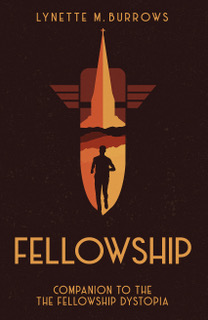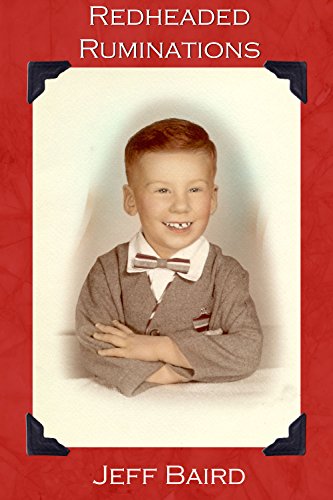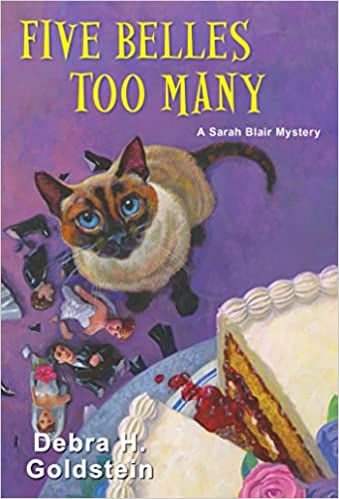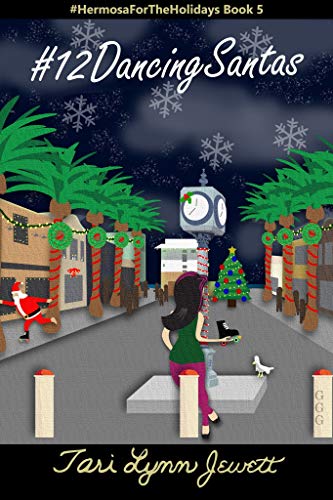Alaska Inferno Book Blitz
June 14, 2021 by marianne h donley in category Apples & Oranges by Marianne H. Donley, Rabt Book Tours tagged as #AlaskaInferno, #LoloPaige, #TheBlazingHeartsWildfireSeiries, @RABTBookTours, Kindle Unlimited

About the Book
Romance, fire, and arson – another deadly mix. You’ll love this second chance, action-packed, smoking hot adventure!
Can a series of wildfires lead to true love under a midnight sun?
Jon Silva is back as a wildland fire investigator, along with his well-earned reputation as a crack firefighter and notorious serial dater. But things have changed in Jon’s world. Now, there are only two women in his life—the one he wants, and the one who wants him—at any cost.
Liz Harrington returns to Alaska’s Aurora Crew, fighting wildfire to earn seed money for her new business. She resisted her attraction to Jon last fire season, but this year she’s not sure she can quell the smoldering passion that ignites whenever they’re together. Though it’s tough, she won’t let her heart be another casualty of the infamous Wildland Wolf.
Someone is setting fires on the Kenai Peninsula. When Jon is summoned to investigate and Liz dispatched to fight the blazes, more than the wildlands are heating up. What Jon discovers blows his world apart. And while Liz fights the most catastrophic fire in Alaska’s history, everything she’s worked for may soon go up in flames.
As Liz and Jon race against time to find the arsonist before their beloved Alaska turns to ash, they must find a way to overcome the lethal forces determined to keep them apart. Fire is unpredictable, and so is love – but will their second chance at romance be extinguished before it’s even lit?
Other Books in the Blazing Hearts Wildfire Series:


About the Book
Romance, sabotage, and fire can be a deadly mix!
Can a chance encounter on a wildfire lead to true love under the midnight sun?
Tara Waters loves being a wildland firefighter and the adrenaline rush of fighting wildfires is her calling. She must be on her game to join an elite hotshot crew in Montana. But when Tara is sent to fight fires in Alaska, her dream falls out of reach.
Sexy Alaskan smokejumper, Ryan O’Connor takes Tara under his wing and counsels her when she fails to save someone on a wildfire. She owes him one, but not her heart just because of his irresistible charm and good looks. Ryan has his own story with plenty of demons in his past. And Tara may be the spark his life needs.
But when a mysterious adversary sabotages Tara on the fire line, she discovers a threat more dangerous than fire—a threat that can destroy everything she’s worked for and second chance for love that could be extinguished before it ignites.

About the Author

LoLo Paige is an award-winning author whose works include novels, short fiction and nonfiction. Her romance books have finaled in several Romance Writers of America (RWA) contests, and her debut novel, Alaska Spark was awarded a 2020 Indie B.R.A.G. Medallion award and was a finalist in the 2021 Eric Hoffer and Next Generation Independent Publishing awards.
Alaska Spark ranked No. 1 on the Amazon Bestseller List for romantic suspense in all markets, including the U.S., Canada, and Australia. The book also ranked in the top 25 in the UK. Alaska Spark has been featured in Publishers Weekly Booklife Magazine, and her nonfiction story about escaping a runaway wildfire won a 2016 Alaska Press Club award. She’s a member of the Alaska Writers Guild, Romance Writers of America, and Romance Writers of Australia.
She divides her time between Alaska and Arizona with her husband and golden retriever, enjoying summers at their Kachemak Bay cabin across from Homer and fishing for halibut and salmon…and writing!
Contact Links
The Blazing Hearts Wildlife Series
(Hover for buy links. Click covers for more information)
Eating–A Writer’s Humanizing Element in Stories Ancient and New
June 13, 2021 by Bethlehem Writers Group in category From a Cabin in the Woods by Members of Bethlehem Writers Group tagged as BWG, Craft, DT Krippene, writing
I remember a National Geographic article from a few years ago, The Joy of Food, by Victoria Pope, offered an interesting observation.
“The sharing of food has always been part of the human story . . . ‘To break bread together’, a phrase as old as the Bible, captures the power of a meal to forge relationships, bury anger, and provoke laughter.”
In creating contemporary fictional scenes, epic fantasy moments, or science fiction settings, food and the act of eating, humanizes a story. Our mouth waters with tantalizing narrative of baked goods and braised stew. Romance tickles when someone gently hand-feeds a morsel of food to a love interest. Intrigue is piqued while supping at the table of a wealthy nineteenth-century Duke. Warmth ebbs in our bones when characters share spit-roasted game around a campfire in the dead of winter. We smile when a normally dysfunctional family banters happily around a holiday feast, setting aside for a moment, that which keeps them apart.
Food can be a defining backdrop with apocalyptic and dystopian fiction. Driven back to our hunter-gatherer forbearers, societies are demoralized with heart-wrenching memories of how abundant food once was. Haves and have-nots when food is scarce, polarize villages, communities, entire nations. Food as common currency is reborn. Suzanne Collins’ Hunger Games trilogy is an excellent example of this. S.M. Stirling’s Dies the Fire serialized life when the power went out—permanently. Christopher Nolen’s movie Interstellar, painted somberness from food-blighted, agrarian collapse.
Food weighs heavily when portraying communal tables, customs, folklore, and regional diversity. George R.R. Martin’s Song of Fire and Ice series is rich with culinary indulgence and subsistence living. Tolkien’s Hobbits are quiet, yet passionate diners. Elves are vegans, and dwarves—well—they’ll eat anything that isn’t green. Robert Jordan’s fourteen book Wheel of Time series has more eating scenes than grains of sand in the Wicked Witch of the West’s hourglass. Vampire feeding is a genre unto itself. Opinions vary on what Zombies find nutritious.
Science fiction poses a stronger challenge with respect to otherworldly beings, especially when writers have to define characteristics of sentient alien life. Babylon 5 was a jewel of multiple alien interactions, all with unique culinary customs. Mary Doria Russell’s The Sparrow did a masterful job of characterizing alien beings by what they shared with pioneering visitors from earth. Hard-core Star Trek fans can cite Klingon fare as if reading from a menu. One of my favorite movies was The Matrix where human “copper-tops” dreamed of real food, but the few humans outside the matrix subsisted on something resembling watery eggs. Has all the body needs, amino acids, proteins . . .” The very sight of it made me gag.
Eating is the ultimate show versus tell enhancer. Here’s one in an old story I wrote that attempts to capture all five senses. A pungent smokiness wafted from the meat offering that resembled a hairless, mummified rat carcass. The skin crackled between her teeth and her eyes watered from its unsalted, campfire bitterness. It was like trying to eat a botched taxidermy job, or an Amazonian shrunken beast stolen from a museum.
A story lacking a good eating scene falls short in illustrating a fundamental anthropological trait, not to mention missing out on a lot of fun writing.
What’s my favorite eating scene? Have to turn the clock back to the 1963 movie adaptation of Henry Fielding’s classic novel set in the British eighteenth-century, The History of Tom Jones, A Foundling, where the handsome Tom and his dining partner wordlessly consume an enormous meal while lustfully gazing at each other.
That’s what I call eating.

A native of Wisconsin and Connecticut, DT Krippene deserted aspirations of being a biologist to live the corporate dream and raise a family. After six homes, a ten-year stint in Asia, and an imagination that never slept, his annoying muse refuses to be hobbled as a mere dream. Dan writes dystopia, paranormal, and science fiction. His current project is about a young man struggling to understand why he was born in a time when humans are unable to procreate and knocking on extinction’s door.
You can find DT on his website and his social media links.
Some of DT Krippene short stories appear in the following anthologies
Challenging Myself To Write A Book Review
June 12, 2021 by Denise M. Colby in category The Writing Journey by Denise Colby tagged as book review, Denise M. ColbyI have found writing book reviews a little intimidating. Even though I know as a expectant published author they are important and help with book sales. I’m not one to share my opinion on something unless asked. And I tend to stress over the words I choose for explaining what I mean. I mean, what if what I say misses the mark? Or offends someone? And I’m not as eloquent as someone else. Have you read some great reviews on a story and wish you could phrase things like that?
Yet, a book review is just that.
An opinion.
And someone might be interested to hear about it from my point of vew.
I have to remember that.
And then when I decided I would try, my kindle only lets me select a star count, not write words, so I’d have to go downstairs to my computer, log-in and find the purchase and write the review. It makes an already reluctant book review writer want to scream.
Yet, don’t I read reviews when making purchases to see if it’s something that fits my interests? I need to at least try.
So now I have a notebook on my ottomon so that when I finish a story I can practice writing a review.
Writing a Book Review
I recently took the time to type up one of them and post it.
I also see that sometimes people review books in blog posts, and that’s a new challenge for me.
So, in the essence of practice, I wanted to post a review in a blog post as well.
Here I go;
Sing in the Sunlight by Kathleen Denly
This is book 2 in her Chaparral Hearts series, published by Wild Heart Books (and yes I’ve read book 1 and looking forward to book #3). The historical setting is in California, mostly in the San Diego area.
Sing in the Sunlight by Kathleen Denly is a special story of love, kindness, & patience.
I loved the characters, their interactions with each other, and the way God’s words were woven throughout the story naturally.
The historical context was rich with details and I felt right there in the story.
The struggles of doubt and longing and the lies we believe were very easy to identify with.
It’s amazing what can happen when one continuously seeks God’s wisdom and stays on the path of doing what’s right. I want to be a better person after reading this.
I wanted to disclose that I received a free copy from the author but was not required to review it. I enjoyed it so much that I wanted to share.
It’s not a large review, but it came from the heart. Maybe I will get more comfortable with this and learn to expand a bit more.
Are you comfortable writing book reviews? For those more experienced, any words of wisdom?
To Deadline Hell and Back or How I’m coping finishing my next Occupied Paris novel by Jina Bacarr
June 11, 2021 by Jina Bacarr in category Jina’s Book Chat, Writing tagged as deadline; research, holocaust; books, Paris, world war 2; editing, writing
I had every intention of writing a lovely post this month about all the cool stuff going on with my WW 2 Occupied Paris novel, The Resistance Girl. Honest I did.
Then the research on my next book shot the pants off that idea.
My deadline is right around the corner.
My book is written… mostly. Some bugs to work out. Re-read, check it over… you know the drill.
The research is overwhelming… so much so, I’ve got to cut this shorter than I like. I’m writing another book about Occupied Paris, but this time my heroine finds herself in a concentration camp. Two of them actually… emotionally, I’m drained. Mentally I’m exhausted.
My heart… broken.
I will never, never be able to understand why it happened, the horror, injustice, humiliation done to the victims of the Holocaust. But I’m determined to tell a story about a brave young woman who had a baby in a camp… and she survived. But she never knew what happened to her baby… until years later.
I’ve watched a million survivor videos… read so many books about the Holocaust… checked and double checked the timelines of the camps and what happened there down to what they ate, where the railroad tracks ended at camp, the blocks or barracks map… and I still have questions. I want to make it right.
No, I’ve got to make it right.
I owe to the those who died and those who survived.
So forgive me if I’m emotional this month.
Because.
We must never forget…
——————-

You can listen to The Resistance Girl on Spotify
Or search for Jina Bacarr and my ‘artiste’ page will pop up.
Amazon Links:
0 0 Read moreTMI? I Don’t Think So by Kitty Bucholtz
June 9, 2021 by Kitty Bucholtz in category It's Worth It by Kitty Bucholtz, Writing tagged as #BookBuzz, creativity and the brain, encouragement, finish your book, pitching to agents and editors, Write Now Workshop PodcastI’m always teasing my husband that I’d be Dr. Kitty at least once by now if I could go to school as much as I want…which is almost always. Hahaha! I love learning! I know the Internet is full of information — too much information to not get sucked into procrastination mode if you’re not careful — but focused learning is important. It’s good for your brain, and it’s good for your career.
There have been so many great topics on my podcast in the last month that I wanted to let you know so you don’t miss something that could be really helpful for you! As much as I’d love for you to subscribe and listen to every episode (!), be careful not to use “learning” as a way not to act, whether it’s writing or editing or submitting or marketing or any of the many other things we writers must do with our time. But in case you missed something that could help you where you’re at right now, here are links on YouTube to the latest episodes. You can also find them on your favorite podcast app or on the Episodes page of my website.
Episode 247 is an interview with agent Cynthia Ruchti, Are You Ready for a Literary Agent?
Episode 248 is from me asking the question, What Will It Take to Finish Your Book?
Episode 249 is a great discussion between me and writing coach, Ann Kroeker, about How to Find the Right Coach.
Episode 250 (woohoo!! 250 episodes!!) is an interview with author Jody Hedlund on Building Book Buzz.
Episode 251 is one of my Encouraging Words episodes, 5 minutes of encouragement to relax and say, This Isn’t Working For Me, when you feel things are going in a direction you’re not comfortable with.
And tomorrow’s episode, #252, will be super interesting in terms of the mind-body connection when I talk with autistic biohacker Jackie McMillan, Are Creativity and Lymphatic Movement Linked?
If you’re interested in learning more about what I do as a writing coach, you can visit the coaching page on my website, https://www.writenowworkshop.com/writingcoach/. Feel free to reach out with any questions. I love to help! And if you’re thinking of self-publishing, download my free Self-Publish Your Book Checklist, a fillable PDF that will help you organize all the information you need in order to self-publish your book.
0 0 Read moreAffiliate Links
A Slice of Orange is an affiliate with some of the booksellers listed on this website, including Barnes & Nobel, Books A Million, iBooks, Kobo, and Smashwords. This means A Slice of Orange may earn a small advertising fee from sales made through the links used on this website. There are reminders of these affiliate links on the pages for individual books.
Search A Slice of Orange
Find a Column
Archives
Featured Books
FIVE BELLES TOO MANY
When Sarah Blair’s mother participates in a reality show competition for brides in Wheaton, Alabama, things get a little too real as a murderer crashes the wedding party . . .
More info →Newsletter
Contributing Authors
Search A Slice of Orange
Find a Column
Archives
Authors in the Bookstore
- A. E. Decker
- A. J. Scudiere
- A.J. Sidransky
- A.M. Roark
- Abby Collette
- Alanna Lucus
- Albert Marrin
- Alice Duncan
- Alina K. Field
- Alison Green Myers
- Andi Lawrencovna
- Andrew C Raiford
- Angela Pryce
- Aviva Vaughn
- Barbara Ankrum
- Bethlehem Writers Group, LLC
- Carol L. Wright
- Celeste Barclay
- Christina Alexandra
- Christopher D. Ochs
- Claire Davon
- Claire Naden
- Courtnee Turner Hoyle
- Courtney Annicchiarico
- D. Lieber
- Daniel V. Meier Jr.
- Debra Dixon
- Debra H. Goldstein
- Debra Holland
- Dee Ann Palmer
- Denise M. Colby
- Diane Benefiel
- Diane Sismour
- Dianna Sinovic
- DT Krippene
- E.B. Dawson
- Emilie Dallaire
- Emily Brightwell
- Emily PW Murphy
- Fae Rowen
- Faith L. Justice
- Frances Amati
- Geralyn Corcillo
- Glynnis Campbell
- Greg Jolley
- H. O. Charles
- Jaclyn Roché
- Jacqueline Diamond
- Janet Lynn and Will Zeilinger
- Jaya Mehta
- Jeannine Atkins
- Jeff Baird
- Jenna Barwin
- Jenne Kern
- Jennifer D. Bokal
- Jennifer Lyon
- Jerome W. McFadden
- Jill Piscitello
- Jina Bacarr
- Jo A. Hiestand
- Jodi Bogert
- Jolina Petersheim
- Jonathan Maberry
- Joy Allyson
- Judy Duarte
- Justin Murphy
- Justine Davis
- Kat Martin
- Kidd Wadsworth
- Kitty Bucholtz
- Kristy Tate
- Larry Deibert
- Larry Hamilton
- Laura Drake
- Laurie Stevens
- Leslie Knowles
- Li-Ying Lundquist
- Linda Carroll-Bradd
- Linda Lappin
- Linda McLaughlin
- Linda O. Johnston
- Lisa Preston
- Lolo Paige
- Loran Holt
- Lynette M. Burrows
- Lyssa Kay Adams
- Madeline Ash
- Margarita Engle
- Marguerite Quantaine
- Marianne H. Donley
- Mary Castillo
- Maureen Klovers
- Megan Haskell
- Melanie Waterbury
- Melisa Rivero
- Melissa Chambers
- Melodie Winawer
- Meriam Wilhelm
- Mikel J. Wilson
- Mindy Neff
- Monica McCabe
- Nancy Brashear
- Neetu Malik
- Nikki Prince
- Once Upon Anthologies
- Paula Gail Benson
- Penny Reid
- Peter J Barbour
- Priscilla Oliveras
- R. H. Kohno
- Rachel Hailey
- Ralph Hieb
- Ramcy Diek
- Ransom Stephens
- Rebecca Forster
- Renae Wrich
- Roxy Matthews
- Ryder Hunte Clancy
- Sally Paradysz
- Sheila Colón-Bagley
- Simone de Muñoz
- Sophie Barnes
- Susan Kaye Quinn
- Susan Lynn Meyer
- Susan Squires
- T. D. Fox
- Tara C. Allred
- Tara Lain
- Tari Lynn Jewett
- Terri Osburn
- Tracy Reed
- Vera Jane Cook
- Vicki Crum
- Writing Something Romantic
Affiliate Links
A Slice of Orange is an affiliate with some of the booksellers listed on this website, including Barnes & Nobel, Books A Million, iBooks, Kobo, and Smashwords. This means A Slice of Orange may earn a small advertising fee from sales made through the links used on this website. There are reminders of these affiliate links on the pages for individual books.


























































